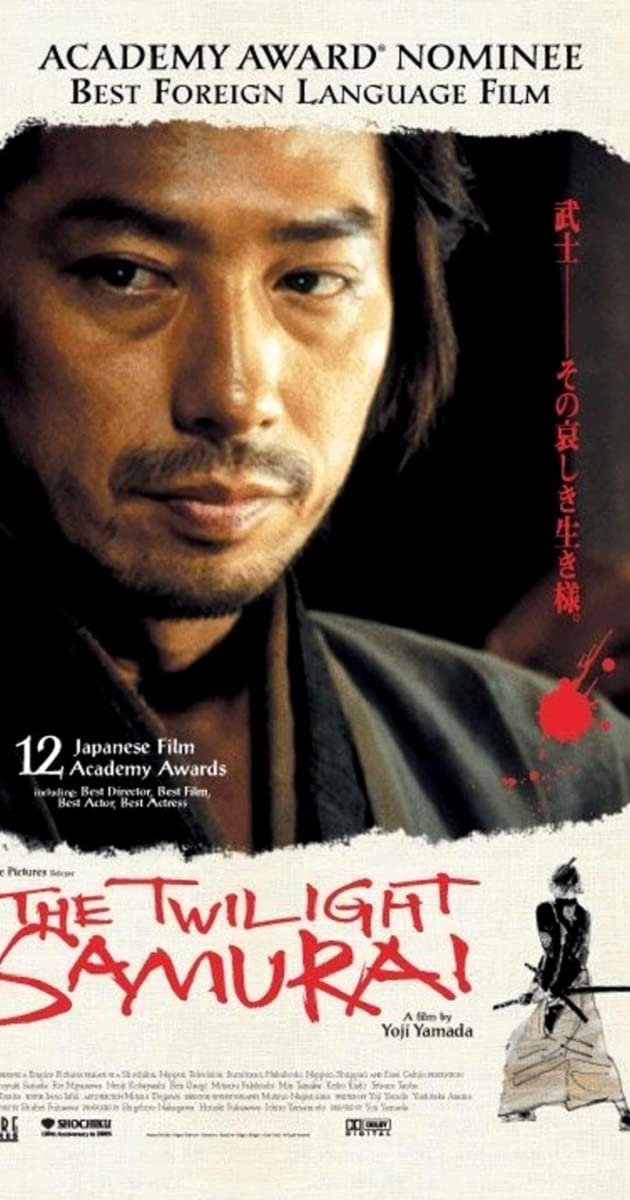
Intro
What would a collection of Japanese films be without a good samurai offering? Similarly, what would a collection of Japanese film reviews be without mention of a good samurai film or two? Hard indeed to exclude such works that demonstrate the countries' remarkable history and the place of its most famous warrior class within it, and so due to this, I turn to the work of veteran filmmaker, Yoji Yamada, and the first of his samurai trilogy, The Twilight Samurai.
The film was shot in 2002, and although the first of three, none of the films shared characters or found a connection through a common story, but rather, the films relied on a common tone and set of themes, namely the look at the samurai in a changing Japanese landscape that no longer has use of them, and the struggle between genuine emotion and desire in contrast to societal duty, expectation, and etiquette.
The Life of Iguchi Seibei
The film follows the life of a petty samurai named Iguchi Seibei, a man who fell on hard times starting with the death of his wife, leaving him alone to care for his two daughters and an ailing mother whos memory continued to fade as time went on. A large amount of debt confounded Seibei's problems, leaving him with little to no standing and an overall negative public perception within his village. But despite all of this, Seibei would attend to his affairs with the attitude of a man who had accepted the cards that he had been dealt and didn't let it stop him from attending to his dutie as a son, a father and a contributing member of his village.
During the day, Seibei would earn his living as something of an accountant of the time, keeping track of the supplies of his village, recording them in large ledgers, and reporting to higher-ranked officials when the time arose. He would attend diligently to his work, leaving at the end of the dayand go straight home to his family, never accepting an offer to share a drink with his colleagues and/or superiors, the result being more judgment as well as the unsavory nickname of Twilight Seibie. However, this never bothered him, his ignorance of others' opinions never distracting from the things he found important in his life, putting his wellbeing, physical and personal hygiene aside for the sake of his daughters and mother.
Excitement would be introduced into Seibeis' life upon the arrival of an old childhood friend, a beautiful young lady named Tomoe Iinuma. Unhappy in her abusive marriage, and unsatisfied with an overbearing family, Tomoe would begin visiting Seibei regularly, even acting as a mother figure for his two daughters. This would invite more problems for both characters given their respective family standings and duties. Seibei would even go on to defend her honor against her enraged alcoholic husband, who was looking for vengeance due to her disobedience as a wife. Seibie stepped up to remove his friend, Tomoe's brother, from a complicated situation, giving a little action to an otherwise peaceful film.
The film is beautifully narrated by one of Seibeis' daughters, reminiscing about a devoted and loving father and a childhood filled with happiness. During the film there are also numerous scenes demonstrating a new breed of soldier, training with new weapons and means of warfare, but none of this seems to truly concern the protagonist, his attitude towards these new developments as indifferent as his attitude of the opinions towards him that everyone seems to hold.
Thoughts
Audiences hoping for a film with more action and a good deal of hacking and slashing will end up disappointed in this particular offering, as Yamada's trilogy looks to explore the samurai as citizens as opposed to soldiers. It a film that does well to demonstrate a clear gap between that which is perceived, and that which is, Seibei not seeming to have read the script that he should be miserable given his station in life and all that has happened, and yet the samurai remains an enigma to all save for those that he prioritizes.
This is perhaps best demonstrated in his meeting with his elder uncle, a stern, old-fashioned man that offers to lift Seibei out of his supposed misery by arranging a marriage with a woman that he neither knows nor likes. The two represent very different outlooks on how life ought to be lived, like the others, the uncle believes that appearance is everything and that all actions need to be performed with the Iguchi name in mind. Seibei, on the other hand, is perfectly content and happy with a life where he gets to watch his children grow up, and doesn't concern himself at all with what others may or may not think of him. Impressive still is his ability to both engage and express the truth of his heart, while none the less still respecting the rituals and etiquette required when dealing with family, friends, or superiors.
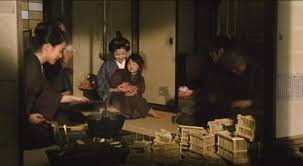
Even young Tomoe goes against the grain in this film, not paying much mind to what others think about her relationship with the Iguchi family, even going so far as to question her older brother's wife in one scene, a socially unheard-of act, but one that once again demonstrated a desire to be honest to one's feelings than to do what others expect. The Twilight Samurai is a well written, serene, and encouraging film about a dying breed of warriors in a rapidly changing Japan, but Iguchi Seibei seems to display more of the qualities of a samurai than any of the so-called higher ranked and better-stationed men do. He demonstrates great patience and restraint, respect, and love throughout the film, undeterred by both his circumstances and public perception. The casting is impressive, with a large collection of characters that drive forward the tension between the old and the new, while the odd sword fights in the film are well-produced and executed with good choreography that livens up particular scenes and carries the story forward well.
As far as dramas go, The Twilight Samurai hits all of the right notes; it's a film that perfectly demonstrates the difference between asking for an easy life and the strength to endure a hard one. Seibei is a character that is easy to get behind, and his life serves as a lesson to all who are too quick to judge others on appearance and circumstances alone. Yamada has done well to create contrasting moods that shows off the serene, graceful and disciplined nature of Japanese culture within its beautiful landscapes while nestling in the loud cannon fire and marching routines that punctuate the rapidly changing country into something new.
Yamada's samurai trilogy comes highly recommended, despite its patient storytelling over breakneck pace, and emphasises relationships and the societies in which they are nurtured within as opposed to large-scale wars and sword fights. The Twilight Samurai is a standout on a resume that goes back to 1961 and makes for some beautifully thoughtful viewing.
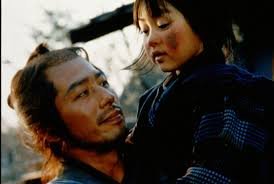
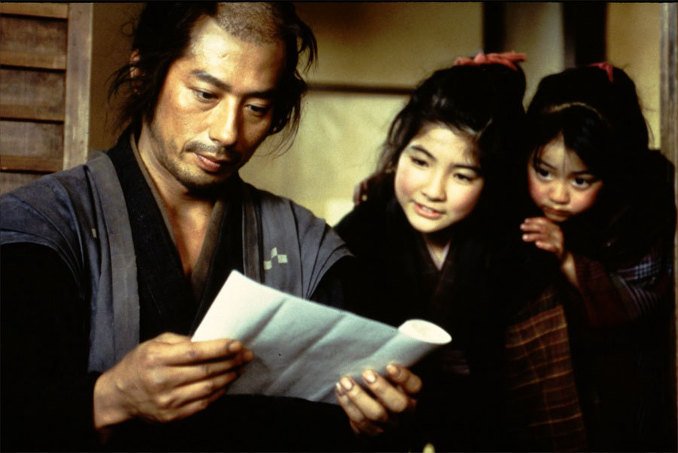
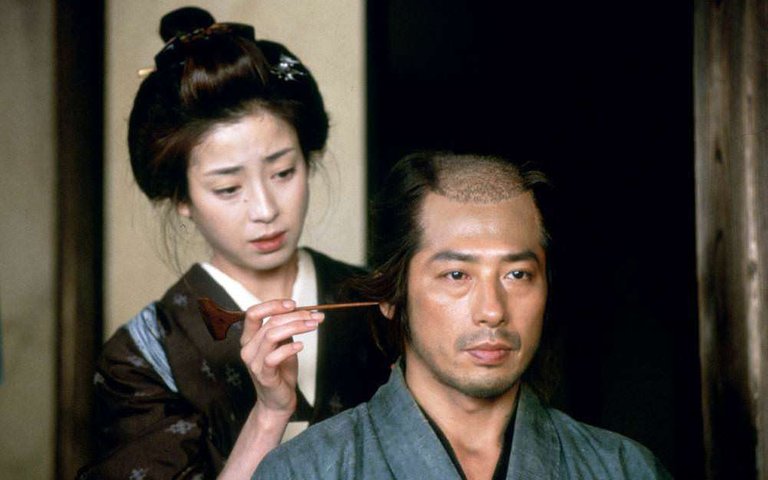
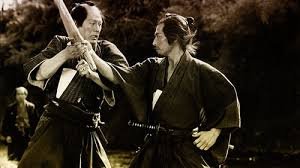
This film most really be good because has my best Japanese actor.
Well done with the review.
Thanks :), I assume you're referring to Hiroyuki Sanada. He is an amazing actor, very impressive resume.